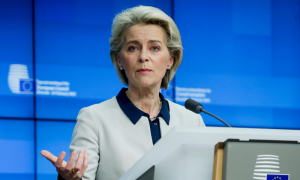Pakistan seeks “concessional financing” for M-6 under CPEC

Islamabad: Pakistan aims to secure Chinese “concessional financing” for the Sukkur-Hyderabad Motorway (M-6) by including including it in mega China-Pakistan Economic Corridor (CPEC), a Pakistani parliamentary body was told.
During a recent briefing to the National Assembly Standing Committee on Planning, Development, and Special Initiatives, Chairman of the National Highway Authority (NHA), Sheryar Sultan, informed the committee, under the chairmanship of Syed Abdul Qadir Gillani, that efforts were underway to secure concessional financing for the motorway project through its incorporation into the CPEC framework.
He informed that Pakistan and China were in the midst of consultations to prioritize the inclusion of the Sukkur-Hyderabad Motorway (M-6) CPEC.

The M-6, a crucial missing link in the Peshawar-Karachi Motorway, is considered a high-priority infrastructure project, essential for completing the motorway network stretching across Pakistan. Sultan outlined that the project’s feasibility study is slated to begin in December.
The Sukkur-Hyderabad Motorway is estimated to cost Pakistani Rs308 billion and will take approximately 30 months to complete once construction commences.
Sultan mentioned plans for another motorway to directly connect Karachi and Hyderabad.
Despite these promising developments, the committee raised critical concerns about the safety standards of existing motorways and the fair allocation of resources across different regions of Pakistan.
The members underscored the need for equitable development, pointing to disparities in resource distribution for major infrastructure projects.
As a result, the committee decided to schedule a dedicated session in the future to further discuss the integration of the Sukkur-Hyderabad Motorway into CPEC, alongside broader concerns surrounding the corridor.
The meeting also tackled a wider array of issues related to the performance of key national development agencies, with the Pakistan Public Works Department (PWD) coming under scrutiny. The committee expressed dissatisfaction with PWD’s handling of development projects, citing frequent delays, budget cuts, and the shelving of critical initiatives.
Members raised concerns over the mismanagement of allocated funds, pointing to instances of corruption, inefficiency, and regional imbalances in project execution. With PWD’s responsibilities for development projects now largely devolved to provincial governments, the committee questioned how incomplete projects would be managed moving forward, particularly in light of unspent or unreleased funds.
In response, they called for greater transparency and accountability and requested a detailed briefing from PWD at the next meeting to ensure that public resources are managed fairly and efficiently.
The committee’s discussions also extended to delays in the Ministry of Health’s initiative to provide free essential medicines to cancer patients, a project supported by a pharmaceutical company. Due to the late submission of documentation by the Ministry of Health, the project was not included in the current year’s Public Sector Development Programme (PSDP).
As a result, the initiative has been deferred to the next budget cycle. Members of the committee emphasized the importance of immediate action to avoid further delays in this critical healthcare project and urged the relevant authorities to expedite the approval process to ensure timely access to life-saving cancer treatments.
Secretary Planning Awais Manzoor also briefed the committee on the status of funding for parliamentarian-led development schemes under the Sustainable Development Goals (SDGs) program.
He explained that in the previous fiscal year, Rs91 billion had been allocated for the program, with Rs 61 billion released in the first phase. However, due to budgetary constraints, the remaining funds were not disbursed, as the PSDP was slashed from Rs950 billion to Rs744 billion. For the current fiscal year, Rs75 billion has been earmarked for SDG-related projects, but once again, the overall PSDP has been reduced from Rs1,400 billion to Rs1,100 billion. Manzoor expressed concerns that further cuts could be on the horizon, potentially jeopardizing the release of funds for parliamentarian schemes and other vital development projects.
He recommended that this issue be raised in the next committee meeting, which will be chaired by the Deputy Prime Minister, to ensure that these schemes receive adequate attention and funding.
While Pakistan and China continue consultations on the inclusion of the Sukkur-Hyderabad Motorway in CPEC, the broader context of Pakistan’s development landscape reflects ongoing challenges.
With limited financial resources, competing priorities, and the need for equitable distribution of funds, the government faces significant hurdles in ensuring that all regions benefit from national development initiatives.
The committee’s deliberations highlighted the critical need for improved management, transparency, and accountability to optimize the impact of development projects across the country.





